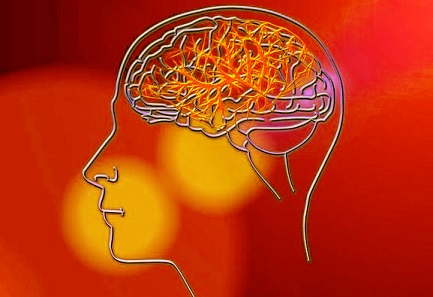Nikhil Prasad Fact checked by:Thailand Medical News Team Dec 25, 2024 3 months, 3 weeks, 5 days, 33 minutes ago
Medical News: Alzheimer’s Disease and the Role of Cholesterol
Alzheimer’s disease remains a leading cause of cognitive decline and dementia among aging populations worldwide. Scientists have long identified aging and genetics as primary risk factors. Specifically, the Apolipoprotein E4 (APOE4) gene has drawn attention for its significant link to late-onset Alzheimer’s disease. A recent study from Dartmouth College’s Geisel School of Medicine has opened new doors to understanding and potentially combating the disease by targeting cholesterol metabolism in the brain.
 New Path to Combat Alzheimer’s Unveiled by Cholesterol Research
New Path to Combat Alzheimer’s Unveiled by Cholesterol Research
The APOE4 gene, compared to its counterparts APOE2 and APOE3, has been found to disrupt cholesterol balance in brain cells, exacerbate neuroinflammation, and promote the accumulation of harmful lipid products. This
Medical News report delves into a groundbreaking approach to managing these issues through the inhibition of the enzyme ACAT1, which plays a central role in cholesterol storage.
The Cholesterol Enzyme ACAT1 and Alzheimer’s Disease
The enzyme acyl-CoA:cholesterol acyltransferase 1 (ACAT1), also known as SOAT1, is responsible for converting free cholesterol into cholesteryl esters (CEs) for storage in lipid droplets. This process, while necessary for cellular homeostasis, becomes problematic in individuals with APOE4, leading to excessive CE accumulation in the brain. These lipid droplets have been linked to increased neuroinflammation and worsened Alzheimer’s symptoms.
In their study, the researchers at Dartmouth’s Geisel School of Medicine explored the use of an ACAT1 inhibitor called F12511. Their work spanned both in vitro (cell culture) and in vivo (mouse model) settings, with results demonstrating promising reductions in CE levels and associated neuroinflammation.
Key Findings from the Study
-In Vitro Experiments
Using microglia - immune cells of the brain - derived from APOE4 mice, the researchers treated the cells with F12511. The results showed:
-A significant reduction in CE levels within lipid droplets.
-Increased activation of ATP-binding cassette transporter A1 (ABCA1), a protein responsible for cholesterol efflux, helping to remove excess cholesterol from cells.
-Reduced activation of NF-κB, a key signaling molecule linked to inflammation, in response to inflammatory stimuli.
These effects suggest that inhibiting ACAT1 can modulate the inflammatory response and improve cholesterol handling in APOE4-affected microglia.
-In Vivo Results
In animal models, the research team tested F12511 encapsulated in nanoparticles for targeted delivery to brain cells. The treatment was administered to both young adult and aged female mice expressing APOE4. The findings were striking:
-Aged APOE4 mice showed a marked
decrease in pro-inflammatory cytokines, including IL-1β, which is associated with Alzheimer’s progression.
-The treatment led to a reduction in Toll-like receptor 4 (TLR4) protein levels, a key driver of inflammatory signaling.
-Lipid droplet content in brain cells was significantly reduced, indicating effective cholesterol regulation.
Interestingly, the effects of the treatment were more pronounced in older mice, which the researchers attributed to increased blood-brain barrier permeability with age and the exacerbation of APOE4-related pathology over time.
Broader Implications and Next Steps
The study presents a compelling case for targeting cholesterol storage mechanisms as a therapeutic strategy for Alzheimer’s disease. By inhibiting ACAT1, researchers were able to simultaneously address two critical issues - cholesterol dysregulation and neuroinflammation. These findings are particularly relevant for individuals carrying the APOE4 gene, who are disproportionately affected by late-onset Alzheimer’s.
The researchers propose several avenues for future investigation. First, they aim to explore the long-term safety and efficacy of ACAT1 inhibitors in preclinical models. Second, understanding the precise mechanisms by which ACAT1 inhibition influences other brain cell types, such as astrocytes and neurons, could yield additional insights. Finally, translating these findings to human studies, particularly in patients with APOE4, will be a critical next step.
Conclusion
This research represents a significant advance in the quest to develop effective treatments for Alzheimer’s disease. By targeting the cholesterol storage enzyme ACAT1, the Dartmouth team has illuminated a new pathway for reducing inflammation and improving brain health in aging populations. While much work remains to be done, these findings offer hope for those at risk of developing Alzheimer’s and underscore the importance of continued research in this area.
The study findings were published in the peer-reviewed International Journal of Molecular Sciences.
https://www.mdpi.com/1422-0067/25/24/13690
For the latest Alzheimer’s News, keep on logging to Thailand
Medical News.
Read Also:
https://www.thailandmedical.news/news/thailand-medical-study-involving-ginger-phytochemicals-could-transform-neurodegenerative-disease-treatments
https://www.thailandmedical.news/news/thailand-medical-researchers-explore-the-use-of-kratom-to-treat-alzheimer-s-disease
https://www.thailandmedical.news/articles/alzheimer,-dementia-
